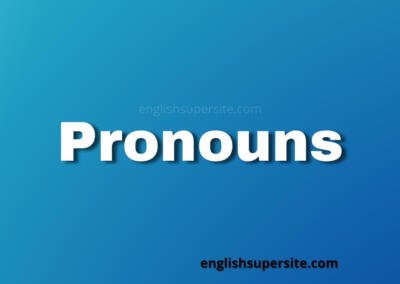
Vocabulary
Vocabulary: Expand Your Word Knowledge for Better Communication
Vocabulary refers to the collection of words you know and use in a language. Expanding your vocabulary helps you express ideas more precisely and effectively in both spoken and written English. Building vocabulary involves learning new words, understanding their meanings, and knowing how to use them in context. It also includes mastering synonyms, antonyms, and idiomatic expressions to improve your language skills.
Strengthening your vocabulary allows you to communicate more clearly and confidently, whether you’re writing an essay, giving a presentation, or engaging in conversation.

Pronouns, easy-to-learn table. I, me, my, mine, myself/you, your, yours, yourself .... Study this table and learn ...
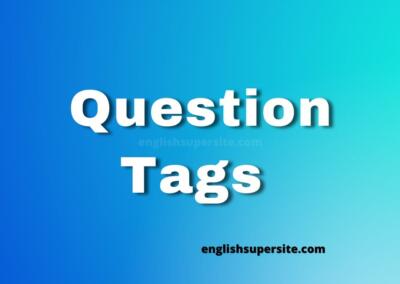
Question Tags Rules, Forms, Exceptions, and Examples. Learn all about Question Tags and how to use them correctly.
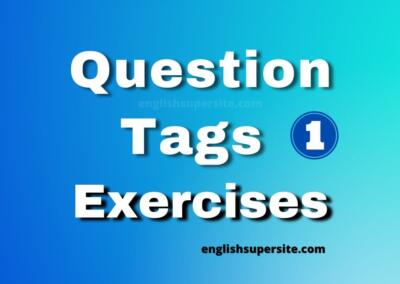
Question Tags - Exercises 1 - Practice exercises with Question Tags - Quiz 1. Exercises corrected in real-time.
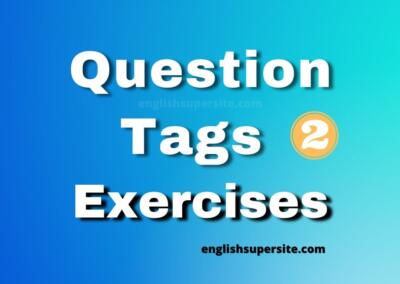
Question Tags - Exercises 2 - Practice exercises with Question Tags - Quiz 2. Exercises corrected in real-time.

So do I, Neither do I, too, either. So am I, neither am I, neither have I, neither would I, neither can I, neither ...
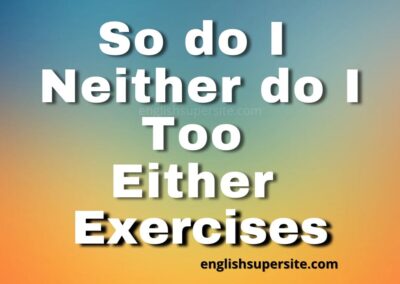
So do I, Neither do I, too, either - Exercises 1 - Quiz. So am I, neither am I, neither have I, and more ... Score ...
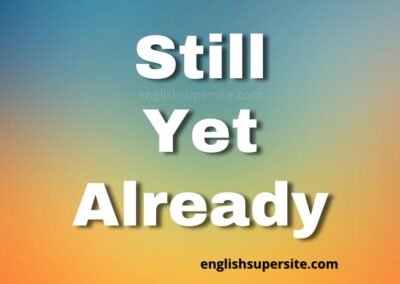
Adverbs of time, still, yet, and already express the idea of continuation or completion in reference to a previous ...

Still - Yet - Already - Exercises 1 - Quiz. Score in Real-Time. Complete the sentences below by choosing the ...
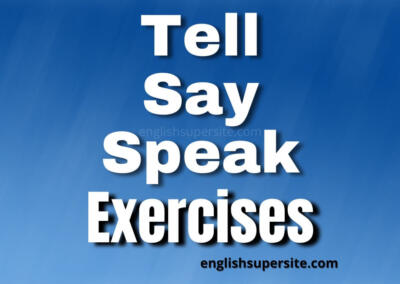
Tell - Say - Speak - Exercises - Quiz. The differences between Tell, Told, Say, Said, Speak, Spoke and Spoken! ...

Tell, Say and Speak. The difference between Tell, Told, Say, Said, Speak, Spoke, and Spoken! Learn how to use ...

Learn when and how to use TO or FOR. Understand the differences and when to use TO and FOR. Use TO and FOR the ...
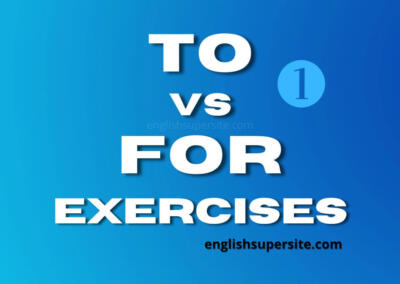
EXERCISES 1 - TO vs FOR Practice the following exercises with TO and FOR: Complete the sentences with TO or FOR. ...
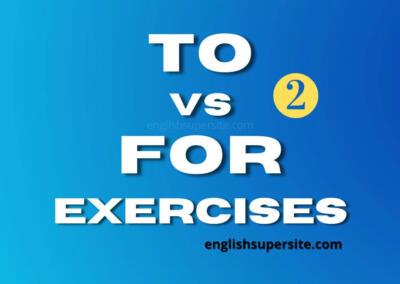
EXERCISES 2 - TO vs FOR Practice the following exercises with TO and FOR: Complete the sentences with TO or FOR. ...
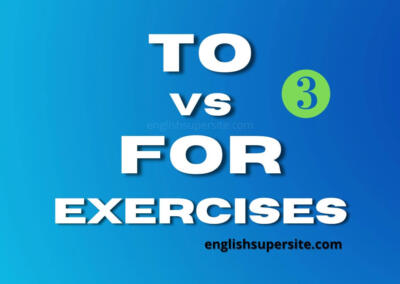
EXERCISES 3 - TO vs FOR Practice the following exercises with TO and FOR: Complete the sentences with TO or FOR. ...
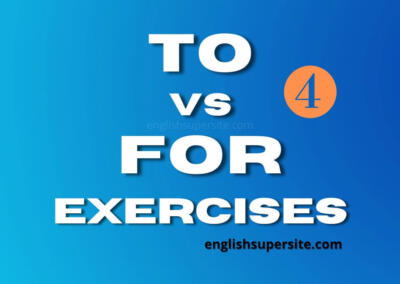
EXERCISES 4 - TO vs FOR Practice the following exercises with TO and FOR: Complete the sentences with TO or FOR. ...
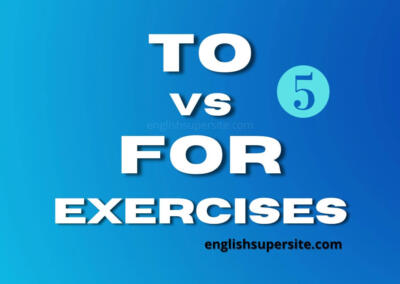
EXERCISES 5 - TO vs FOR Practice the following exercises with TO and FOR: Complete the sentences with TO or FOR. ...
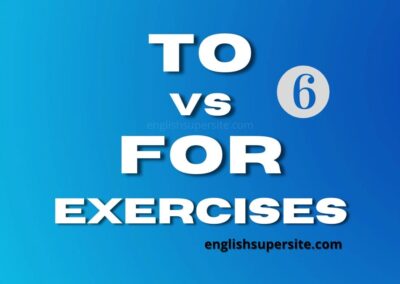
EXERCISES 6 - TO vs FOR Practice the following exercises with TO and FOR: Complete the sentences with TO or FOR. ...
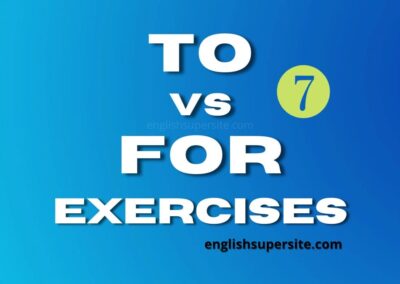
EXERCISES 7 - TO vs FOR Practice the following exercises with TO and FOR: Complete the sentences with TO or FOR. ...
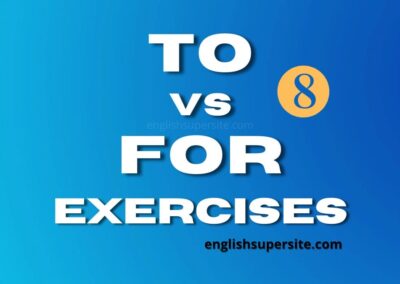
EXERCISES 8 - TO vs FOR Practice the following exercises with TO and FOR: Complete the sentences with TO or FOR. ...

Transition Words and Linking Words describe the relationship between two statements, phrases, sentences, or paragraphs.
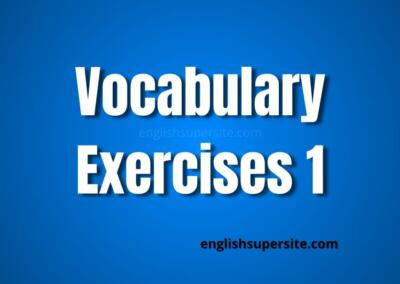
Improve your English with Vocabulary - Exercises 1. Take a multiple-choice quiz with real-time feedback and boost ...
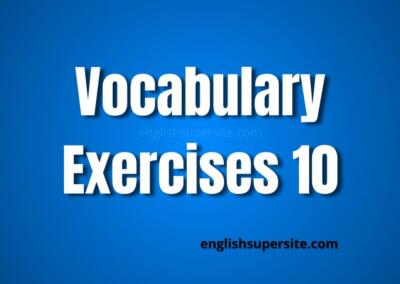
Improve your English with Vocabulary - Exercises 10. Take a multiple-choice quiz with real-time feedback and boost ...
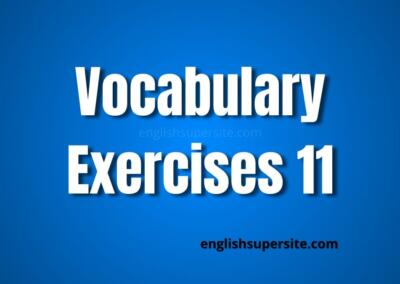
Improve your English with Vocabulary - Exercises 11. Take a multiple-choice quiz with real-time feedback and boost ...
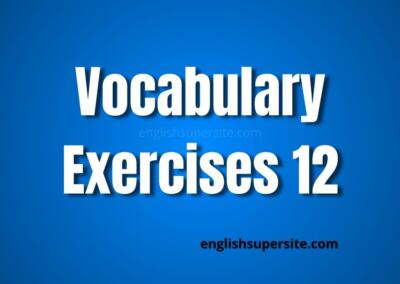
Improve your English with Vocabulary - Exercises 12. Take a multiple-choice quiz with real-time feedback and boost ...
Related Posts

Adverbs of time, still, yet, and already express the idea of continuation or completion in reference to a previous ...
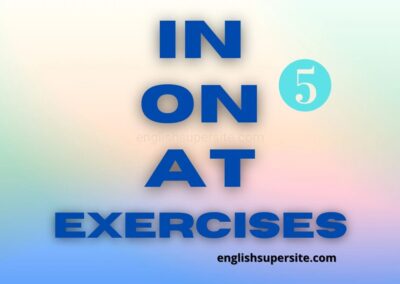
IN - ON - AT - Exercises 5 - Quiz - Practice using the prepositions IN, ON and AT. Complete the sentences below ...
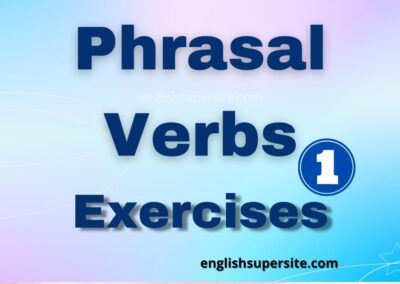
Phrasal Verbs - Exercises 1 - Quiz - Check your progress in REAL TIME. These exercises can help you evaluate your ...


